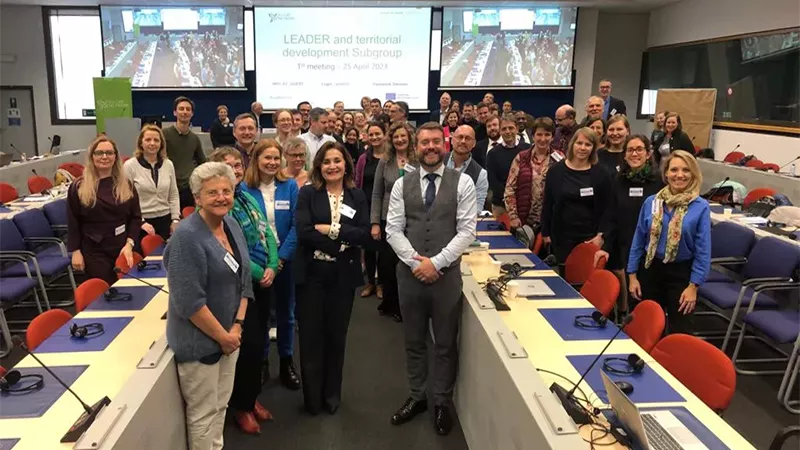LEADER and territorial development Subgroup: 1st meeting
Smarter, simpler, younger LEADER projects and Local Action Groups were among the agenda items covered by the first governance meeting of our Subgroup on LEADER and territorial development.

Smarter, simpler, younger LEADER projects and Local Action Groups (LAGs) were among the agenda items covered by the first governance meeting of the EU CAP network’s Subgroup on LEADER and territorial development, which met in Brussels on 25 April.
LEADER experts from 26 Member States comprise the Subgroup and their mandate involves working with CAP stakeholders and EU country administrations regarding LEADER and territorial development. Expertise in the Subgroup includes CAP Managing Authorities, Local Action Groups, National Networks, and EU wide organisations.
Items on the Subgroup meeting agenda covered LEADER’s expected contributions during the 2023-2027 CAP period. It was noted that the added value of LEADER needed to be continually demonstrated in its different forms, not least in response to the recent special report from the European Court of Auditors. LEADER’s framework for added value is set around social capital, better governance, and project results. Work is underway by the EU CAP Network’s Evaluation Helpdesk to strengthen the capacity for LEADER and evaluation in this context. This will comprise an additional evaluation study currently underway and a planned Thematic Working Group on the subject.
Many factors were identified on the day by Subgroup members to help enable LEADER to improve by becoming ‘smarter’, ‘younger’ and ‘simpler’. Benefits identified included:
Smarter
- LAG clustering
- urban cooperation
- links with research and EIP Operational Groups
- digital tools for transnational cooperation
Simpler
- consolidating administrative checks into shared systems
- national networking of LAGs
- a vocabulary of common terminology
- audit-compliant Simplified Cost Options
Younger
- working closely with youth communication expertise to maximise outreach opportunities,
- tailored intervention levels and conditions to incentivise youth,
- involving youth in LAG daily work and decision-making and local democracy.
Subgroup members agreed to continue networking informally before their next meeting. You can follow all the Subgroup outcomes (including the speakers' presentations and summaries of group work) on the event’s website page.